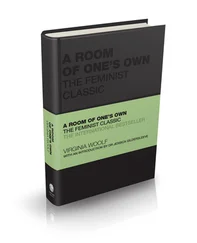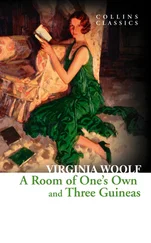Virginia Woolf - Jacob's Room
Здесь есть возможность читать онлайн «Virginia Woolf - Jacob's Room» весь текст электронной книги совершенно бесплатно (целиком полную версию без сокращений). В некоторых случаях можно слушать аудио, скачать через торрент в формате fb2 и присутствует краткое содержание. Жанр: Классическая проза, на английском языке. Описание произведения, (предисловие) а так же отзывы посетителей доступны на портале библиотеки ЛибКат.
- Название:Jacob's Room
- Автор:
- Жанр:
- Год:неизвестен
- ISBN:нет данных
- Рейтинг книги:3 / 5. Голосов: 1
-
Избранное:Добавить в избранное
- Отзывы:
-
Ваша оценка:
- 60
- 1
- 2
- 3
- 4
- 5
Jacob's Room: краткое содержание, описание и аннотация
Предлагаем к чтению аннотацию, описание, краткое содержание или предисловие (зависит от того, что написал сам автор книги «Jacob's Room»). Если вы не нашли необходимую информацию о книге — напишите в комментариях, мы постараемся отыскать её.
Jacob's Room — читать онлайн бесплатно полную книгу (весь текст) целиком
Ниже представлен текст книги, разбитый по страницам. Система сохранения места последней прочитанной страницы, позволяет с удобством читать онлайн бесплатно книгу «Jacob's Room», без необходимости каждый раз заново искать на чём Вы остановились. Поставьте закладку, и сможете в любой момент перейти на страницу, на которой закончили чтение.
Интервал:
Закладка:
"One's godmothers ought to have told one," said Fanny, looking in at the window of Bacon, the mapseller, in the Strand-told one that it is no use making a fuss; this is life, they should have said, as Fanny said it now, looking at the large yellow globe marked with steamship lines.
"This is life. This is life," said Fanny.
"A very hard face," thought Miss Barrett, on the other side of the glass, buying maps of the Syrian desert and waiting impatiently to be served. "Girls look old so soon nowadays."
The equator swam behind tears.
"Piccadilly?" Fanny asked the conductor of the omnibus, and climbed to the top. After all, he would, he must, come back to her.
But Jacob might have been thinking of Rome; of architecture; of jurisprudence; as he sat under the plane tree in Hyde Park.
The omnibus stopped outside Charing Cross; and behind it were clogged omnibuses, vans, motor-cars, for a procession with banners was passing down Whitehall, and elderly people were stiffly descending from between the paws of the slippery lions, where they had been testifying to their faith, singing lustily, raising their eyes from their music to look into the sky, and still their eyes were on the sky as they marched behind the gold letters of their creed.
The traffic stopped, and the sun, no longer sprayed out by the breeze, became almost too hot. But the procession passed; the banners glittered -far away down Whitehall; the traffic was released; lurched on; spun to a smooth continuous uproar; swerving round the curve of Cockspur Street; and sweeping past Government offices and equestrian statues down Whitehall to the prickly spires, the tethered grey fleet of masonry, and the large white clock of Westminster.
Five strokes Big Ben intoned; Nelson received the salute. The wires of the Admiralty shivered with some far-away communication. A voice kept remarking that Prime Ministers and Viceroys spoke in the Reichstag; entered Lahore; said that the Emperor travelled; in Milan they rioted; said there were rumours in Vienna; said that the Ambassador at Constantinople had audience with the Sultan; the fleet was at Gibraltar. The voice continued, imprinting on the faces of the clerks in Whitehall (Timothy Durrant was one of them) something of its own inexorable gravity, as they listened, deciphered, wrote down. Papers accumulated, inscribed with the utterances of Kaisers, the statistics of ricefields, the growling of hundreds of work-people, plotting sedition in back streets, or gathering in the Calcutta bazaars, or mustering their forces in the uplands of Albania, where the hills are sand-coloured, and bones lie unburied.
The voice spoke plainly in the square quiet room with heavy tables, where one elderly man made notes on the margin of typewritten sheets, his silver-topped umbrella leaning against the bookcase.
His head- bald, red-veined, hollow-looking-represented all the heads in the building. His head, with the amiable pale eyes, carried the burden of knowledge across the street; laid it before his colleagues, who came equally burdened; and then the sixteen gentlemen, lifting their pens or turning perhaps rather wearily in their chairs, decreed that the course of history should shape itself this way or that way, being manfully determined, as their faces showed, to impose some coherency upon Rajahs and Kaisers and the muttering in bazaars, the secret gatherings, plainly visible in Whitehall, of kilted peasants in Albanian uplands; to control the course of events.
Pitt and Chatham, Burke and Gladstone looked from side to side with fixed marble eyes and an air of immortal quiescence which perhaps the living may have envied, the air being full of whistling and concussions, as the procession with its banners passed down Whitehall. Moreover, some were troubled with dyspepsia; one had at that very moment cracked the glass of his spectacles; another spoke in Glasgow to-morrow; altogether they looked too red, fat, pale or lean, to be dealing, as the marble heads had dealt, with the course of history.
Timmy Durrant in his little room in the Admiralty, going to consult a Blue book, stopped for a moment by the window and observed the placard tied round the lamp-post.
Miss Thomas, one of the typists, said to her friend that if the Cabinet was going to sit much longer she should miss her boy outside the Gaiety.
Timmy Durrant, returning with his Blue book under his arm, noticed a little knot of people at the street corner; conglomerated as though one of them knew something; and the others, pressing round him, looked up, looked down, looked along the street. What was it that he knew?
Timothy, placing the Blue book before him, studied a paper sent round by the Treasury for information. Mr. Crawley, his fellow-clerk, impaled a letter on a skewer.
Jacob rose from his chair in Hyde Park, tore his ticket to pieces, and walked away.
"Such a sunset," wrote Mrs. Flanders in her letter to Archer at
Singapore. "One couldn't make up one's mind to come indoors," she wrote.
"It seemed wicked to waste even a moment."
The long windows of Kensington Palace flushed fiery rose as Jacob walked away; a flock of wild duck flew over the Serpentine; and the trees were stood against the sky, blackly, magnificently.
"Jacob," wrote Mrs. Flanders, with the red light on her page, "is hard at work after his delightful journey..."
"The Kaiser," the far-away voice remarked in Whitehall, "received me in audience."
"Now I know that face-" said the Reverend Andrew Floyd, coming out of
Carter's shop in Piccadilly, "but who the dickens-?" and he watched
Jacob, turned round to look at him, but could not be sure-
"Oh, Jacob Flanders!" he remembered in a flash.
But he was so tall; so unconscious; such a fine young fellow.
"I gave him Byron's works," Andrew Floyd mused, and started forward, as Jacob crossed the road; but hesitated, and let the moment pass, and lost the opportunity.
Another procession, without banners, was blocking Long Acre. Carriages, with dowagers in amethyst and gentlemen spotted with carnations, intercepted cabs and motor-cars turned in the opposite direction, in which jaded men in white waistcoats lolled, on their way home to shrubberies and billiard-rooms in Putney and Wimbledon.
Two barrel-organs played by the kerb, and horses coming out of Aldridge's with white labels on their buttocks straddled across the road and were smartly jerked back.
Mrs. Durrant, sitting with Mr. Wortley in a motor-car, was impatient lest they should miss the overture.
But Mr. Wortley, always urbane, always in time for the overture, buttoned his gloves, and admired Miss Clara.
"A shame to spend such a night in the theatre!" said Mrs. Durrant, seeing all the windows of the coachmakers in Long Acre ablaze.
"Think of your moors!" said Mr. Wortley to Clara.
"Ah! but Clara likes this better," Mrs. Durrant laughed.
"I don't know-really," said Clara, looking at the blazing windows. She started.
She saw Jacob.
"Who?" asked Mrs. Durrant sharply, leaning forward.
But she saw no one.
Under the arch of the Opera House large faces and lean ones, the powdered and the hairy, all alike were red in the sunset; and, quickened by the great hanging lamps with their repressed primrose lights, by the tramp, and the scarlet, and the pompous ceremony, some ladies looked for a moment into steaming bedrooms near by, where women with loose hair leaned out of windows, where girls-where children-(the long mirrors held the ladies suspended) but one must follow; one must not block the way.
Clara's moors were fine enough. The Phoenicians slept under their piled grey rocks; the chimneys of the old mines pointed starkly; early moths blurred the heather-bells; cartwheels could be heard grinding on the road far beneath; and the suck and sighing of the waves sounded gently, persistently, for ever.
Читать дальшеИнтервал:
Закладка:
Похожие книги на «Jacob's Room»
Представляем Вашему вниманию похожие книги на «Jacob's Room» списком для выбора. Мы отобрали схожую по названию и смыслу литературу в надежде предоставить читателям больше вариантов отыскать новые, интересные, ещё непрочитанные произведения.
Обсуждение, отзывы о книге «Jacob's Room» и просто собственные мнения читателей. Оставьте ваши комментарии, напишите, что Вы думаете о произведении, его смысле или главных героях. Укажите что конкретно понравилось, а что нет, и почему Вы так считаете.











